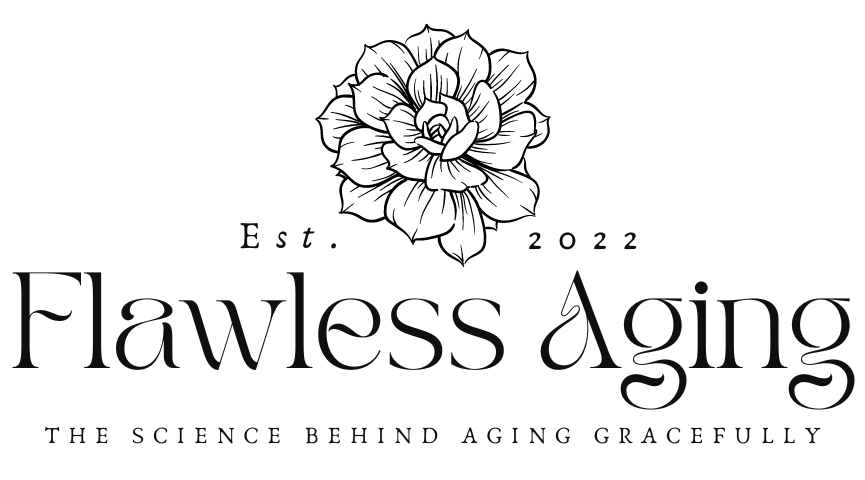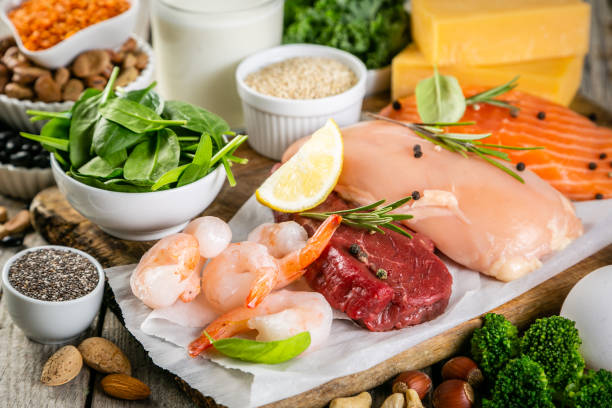Protein is vital at any life stage because it not only preserves muscle mass, but it is essential for maintaining our mental health and bone health as well as many other important functions. And since our bodies are made up of mostly protein (skin, hair, organs, bones, and muscles), it only makes since to make protein intake a priority for aging health.
Breaking it Down
Amino acids are the building blocks of protein. Some amino acids are created or modified by the body while nine essential amino acids come from food sources. Foods that contain all nine essential amino acids are fish, eggs, beef, poultry, quinoa, soy, and buckwheat. And while other food sources contain protein, they are not considered a “complete protein” since they do not contain all nine amino acids.
It’s easy to think that we need protein to be big and strong or have healthy hair and nails. But it goes so much deeper than that. Complete proteins do so much more than we can fathom. Designed to support healthy growth and development, maintain necessary functions, protect organs and tissues, and provide energy, the body needs protein for aging well.
How Protein Impacts the Body
Brain Health
The amino acids in protein work to stabilize the brain’s chemical messengers (neurotransmitters). Without amino acids, these messengers cannot maintain mood and energy levels. This can lead to serious health problems including anxiety, mood swings, depression, and uncontrollable hunger. From there, your immune system becomes vulnerable.
Hormones
Amino acids act as the builder of hormone production. Amino acids repair and produce new hormones. Hormones work in a similar pattern as neurotransmitters. They send signals to different organs to maintain a healthy metabolism, stabilize blood sugar levels, and maintain the body’s internal command center. Maintaining estrogen, progesterone, and testosterone levels is essential for health.
Muscle Mass
Muscles are necessary for aging as muscles improve mobility, supply oxygen to organs, control involuntary movements, and act as an energy source. Basically, without muscles, we cannot survive. You see, our muscles act as a holding tank for amino acids. Muscles control the movement of the skeletal system and makes the heart and lungs stronger. And without adequate protein intake, our bodies will break down muscle tissue and outsource amino acids to other organs needed to function (the heart).
Bone Structure
A low protein diet can weaken bones and the tissues that hold them together. According to research, our bones are constantly undergoing restoration. And while the science is complex, we do know that low protein diets can lead to decreased bone density and essentially this can lead to fractures or even osteoporosis.
How do I get enough protein?
As we age, our bodies do not absorb as much protein as they did when we were younger. The body tends to become less efficient at how it processes nutrients, including protein. This means that increasing protein as you age is essential for optimal health. And if you currently struggle with getting enough protein, you may want to look at a protein supplement to help.
Protein powders are a great way to add protein to your diet. And with so many options to choose from, how do you know which is right for you? As discussed, choosing complete proteins are best since the body needs all nine amino acids to function. You will also want to look for a low-sugar, low-carb, and low-calorie protein powder. If you’re wanting a vegetarian option, I love Garden of Life Sport Organic Plant-Based Protein. It’s a complete protein and it’s low in sugar and carbs. For non-vegetarians, my go-to is Gold Standard Whey Protein Powder in Vanilla Ice Cream. Drink it with almond milk, coconut water, or in a smoothie and you will have yourself a delicious, healthy beverage.
Aging well with protein
Think of protein as a house and the amino acids are the inside walls. If the house is missing a wall, it can have structural issues. The same is true for aging and health. Protein plays a vital role in how the body functions. In addition to supporting our organs and skeletal system, protein boosts our immune system to help fight infections. Don’t forgo protein or assume you get enough. Track your intake for a week and see how well you do. If you’re able to meet or exceed the daily recommendation (USDA guidelinesUSDA guidelines: .8 grams per 2 lbs bodyweight) then way to go! But if you are below that number, consider adding more protein to your diet so that you may age gracefully.
Try my PB Protein Smoothie or my Date Protein Balls for a quick, protein packed pick-me-up.





